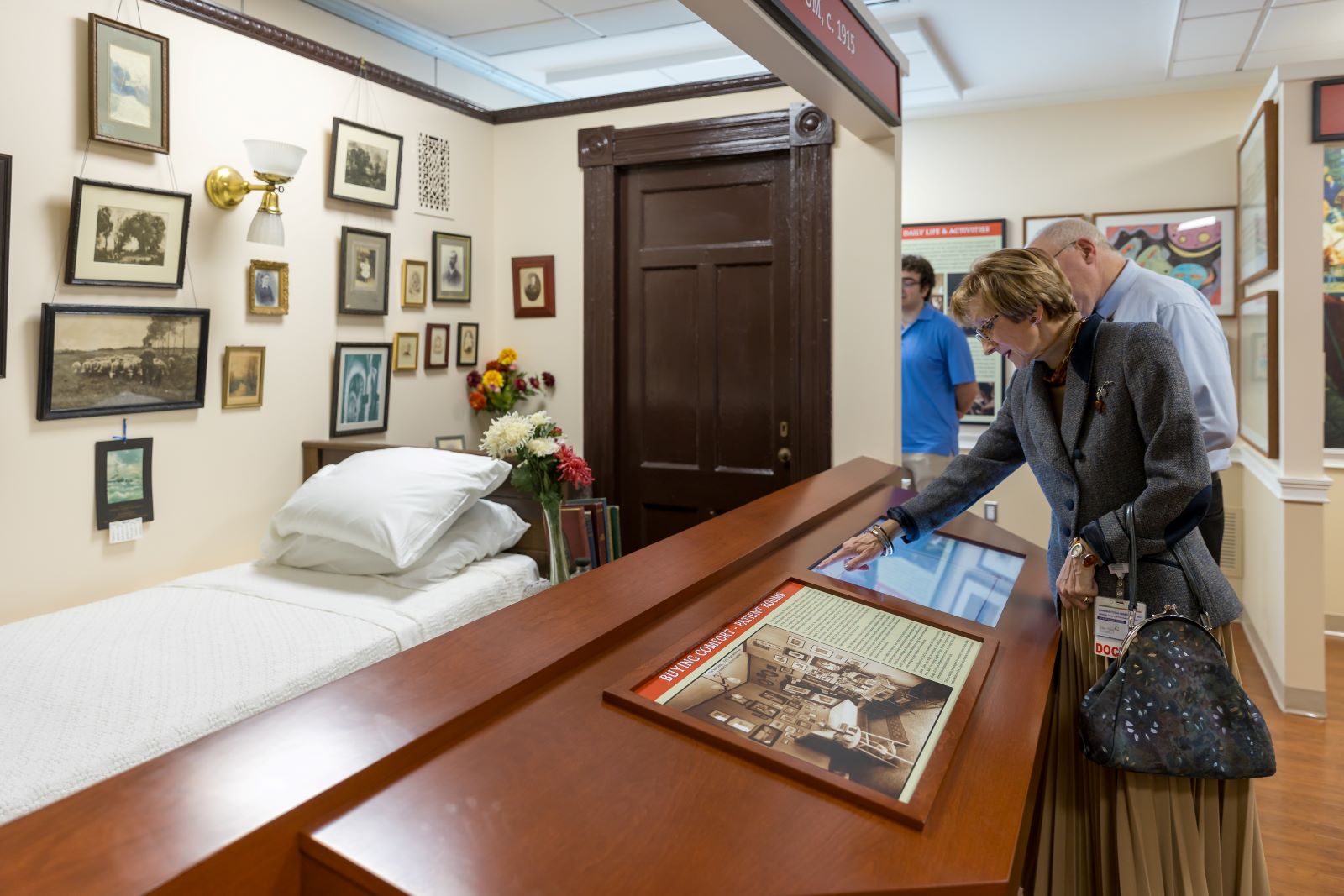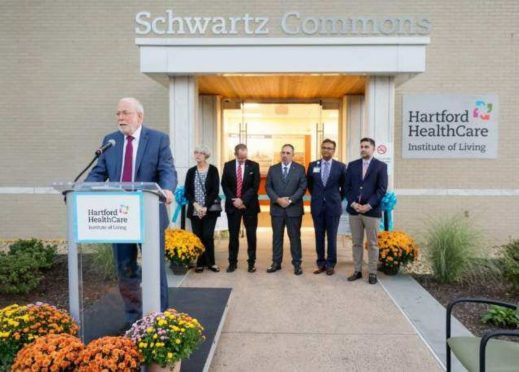<< Back
Updated IOL Exhibit Gives Multi-Media Look at History of Mental Healthcare

October 06, 2023
The history of mental healthcare – from the days when people were locked away in prisons or poor houses through the shift to specially-designed hospitals and clinics offering compassionate, tailored care – mirrors the first 200 years of the Institute of Living (IOL).
This makes the recent reopening of the “Myths, Minds and Medicine: Two Centuries of Mental Health Care” exhibit in the IOL’s in-house museum one of the most poignant events in the facility’s 200th year-long anniversary celebration.
The permanent exhibit originally opened 28 years ago, detailing the dramatic changes in the public’s perception of people with mental illness and advances in treatment. With a grant from the Connecticut Humanities Council, historians culled through documents, artifacts, letters and photographs from IOL attics, basements and shuttered offices to create the message of the exhibit. The decision had been to honestly portray medicine’s well-intentioned, if sometimes erroneous, attempts to alleviate the suffering of those with mental illness.
Parts of “Myths, Minds and Medicine” comes from the patients themselves, with recorded voices recreating letters some wrote, and a reconstructed patient room from the early 19th century invites visitors to imagine what life at the IOL was like then.
Visitors move at their own pace past displays containing images and stories of how the mentally ill, who were once considered possessed by evil spirits, were often kept chained or in cages, through the principles of “moral treatment,” on which IOL was founded, to more modern-day approaches to care that included such desperate measures as insulin shock therapy, crude electroconvulsive therapy and lobotomy.
The exhibit culminates in a look at present-day treatment and brain chemistry research that will lead to better forms of care in the future. This section is illuminated by the exhibit’s new “brain box,” which takes visitors digitally through the different parts of the brain and points out fun facts the average person wouldn’t know. A quiz at the end tests how well you paid attention.

A small but passionate group spearheaded the exhibit update with the help of a team of multimedia experts from Quast Media. Included in the planning were Harold “Hank” Schwartz, MD, psychiatrist-in-chief emeritus of the IOL who has written about the IOL’s history and helped found and curate the original exhibit. The same day the museum reopened, the IOL Commons Building, home of the Hank Schwartz Education Center, was dedicated in his honor.
“As the IOL’s 200th anniversary came up, it seemed like a no-brainer to renovate the museum,” Dr. Schwartz says.
The upgrade included re-casting the historic look at mental healthcare using new technology, upgrading VHS tapes and laser discs from the original exhibit, notes Jeff Durham, director of strategy at Quast Media. The new exhibit, which took about a year to design and install, includes interactive touch screen technology that offers an intriguing hands-on learning experience.
“It was antiquated,” Durham says of the original exhibit. “Audiences are constantly changing, especially in the digital age, and museums need to keep up. You need digital components to get your audience excited and engaged. We are able to use all this technology to create a sense of fascination.”
At the beginning of the exhibit, a multi-touch kiosk transports visitors back to the early 20th century using photos, a video tour of a patient room and digitized letters from former patients to give them a sense of what it was like to be a patient at the IOL.
Elsewhere, on a giant screen, a video of Godfrey Pearlson, MD, director of the Olin Neuropsychiatry Research Center at the IOL, in what Durham calls a “Bill Nye-like educational video” where he explains mental illness and modern therapies.
“It’s very uplifting and hopeful” in addition to being educational, Durham says.
“Myths, Minds and Medicine” is located on the second floor of the Commons Building, and is open to the pubic weekdays from 9 a.m. to 5 p.m.